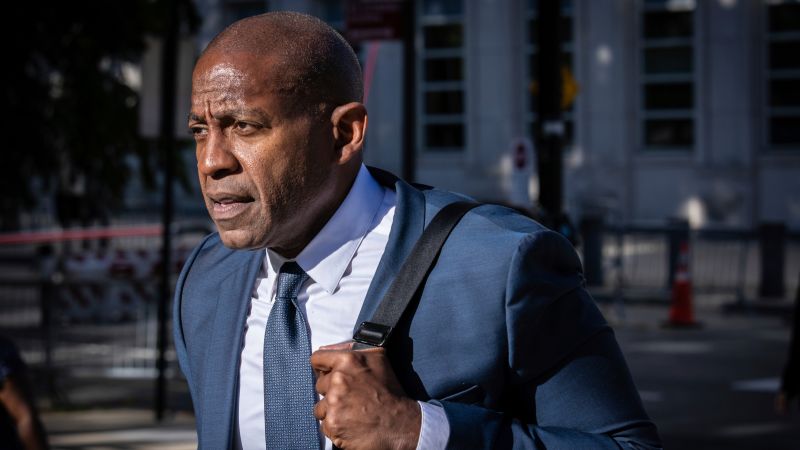Ozy Media and founder Carlos Watson were convicted of fraud by a Brooklyn federal jury on Tuesday, in a case accusing them of lying to investors about the now-defunct startup’s finances and sham deals with Google and Oprah Winfrey.
Watson, a former cable news anchor and investment banker, and Ozy were each convicted of securities fraud conspiracy and wire fraud conspiracy, while Watson was also convicted of identity theft. Both had pleaded not guilty.
Federal prosecutors said Watson and his California-based news and entertainment company falsified information about Ozy’s finances and audience size, fabricated contracts and inflated earnings projections to court investors.
Founded in 2013, Ozy imploded in 2021 after news reports questioned its audience numbers and revealed that a top executive had impersonated a YouTube executive during a call with Goldman Sachs bankers in which he claimed the streaming site agreed to pay for exclusive rights to an Ozy show.
Prosecutors said Watson could face about 24 to 29 years in prison under recommended federal sentencing guidelines, including a mandatory two years for identity theft. His sentencing is set for Nov. 18.
“Ozy Media ultimately collapsed under the weight of Watson’s dishonest schemes and with today’s verdict, Watson himself has been held accountable for his brazen crimes,” Brooklyn US Attorney Breon Peace said in a statement.
Lawyers for Watson and Ozy did not immediately respond to requests for comment.
Watson’s lawyer had told jurors that Watson was betrayed by deputies who acted on their own and kept him in the dark about their wrongdoing.
The verdict follows a six-week trial that featured testimony by two former Watson deputies, who pleaded guilty to fraud.
They told jurors they conspired with Watson to hide Ozy’s crippling debt, meager cash reserves and slow growth.
Ozy folded shortly after The New York Times reported on former chief operating officer Samir Rao’s impersonation of the YouTube executive.
Watson denied involvement in the incident, though prosecutors said contemporaneous chat logs show he coached Rao on what to say.
The YouTube executive Alex Piper and Google CEO Sundar Pichai testified for the government, saying they never had deals with Ozy or considered buying it at any price, contrary to Watson’s claims to investors.
Prosecutors said Watson also assured investors that Ozy was thriving even as its cash reserves sank to $19,000 in 2018 and it struggled to pay rent, wages and other basic expenses.
Watson testified for several days in his own defense. He said prosecutors’ view of Ozy’s finances was simplistic and failed to appreciate the nuances of media industry dealmaking. He also blamed negative press coverage for Ozy’s demise.
During cross-examination, Watson was at times evasive about the inconsistent revenue figures Ozy provided to investors.
He also declined a prosecutor’s request to break down Ozy’s annual revenue in cash rather than future potential earnings.
“That’s not the way I’ve thought about it before and that’s not the way our investors thought about it,” he said.
Read the full article here




